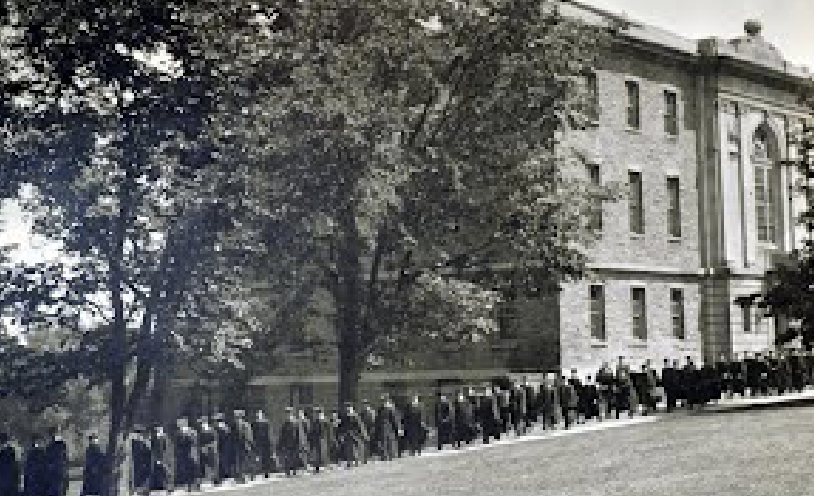Abandoning the Race to Check Off Major Requirements: Choosing Intellectual Curiosity in Class Selections
When I registered for classes over the summer as a curious incoming first-year, I indicated a strong interest in EDUC 101: The American School. After reading the course description, it seemed like a worthwhile class in which to enroll, and it was quite different from anything that my high school offered. Upon registering for the course last semester, I was discouraged by the negative reactions espoused by my family and peers. When I inquired about their resistance to me enrolling in an education course, “that’s not your major” was a common response, along with “you don’t even want to be a teacher.” Such opinions made me increasingly concerned about my course selection, and I nearly succumbed to the pressure to drop the course in exchange for one that related to my intended major. However, after spending a week getting acclimated to the curriculum, I decided to remain in The American School. It was ultimately one of the best academic decisions I’ve ever made.
The American School introduced me to the vast inequities within the school system as well as the myth that underprivileged students and families do not value education. As someone who was fortunate enough to attend a well-funded school in an affluent area, the case studies we examined in class were both horrifying and eye-opening. Although The American School contains sensitive themes, such as racism, socioeconomic class, redlining and micro-aggressions, my peers and I engaged in respectful, thought-provoking discussions that combined our personal experiences with class material.
Often, students dread daily readings, as many find them irrelevant, boring and a sheer waste of time. In The American School, however, I noticed that my peers were more inclined to read the assigned texts, as the course material underscored contemporary issues that are relatable to the average student. Several of my classmates opened up about their experiences within the school system in conjunction with the themes we examined in class. While some of my peers’ accounts were foreign to my own, getting to know more about my classmates not only aided in my understanding of the American school system but also fostered connections between peers that I found to be lacking in my other courses.
It is true that I am not an education major, and it is true that I do not intend to be a teacher. However, The American School offered a unique curriculum that can enrich the education of every Colgate student, whether they plan to specialize in educational studies, or astrophysics.
This course particularly stands to benefit the Colgate community, which is somewhat homogenous and consists primarily of students that attended prestigious high schools in wealthier areas. It is a shame that countless students will overlook The American School because of the misconception that such courses are “useless” to anyone who does not plan on pursuing a degree in education.
As someone who intends to major in international relations, The American School was one of the most informative and provocative courses in which I enrolled. The subject matter itself may not relate to my undergraduate degree or future career prospects, but the knowledge I acquired will stick with me for years to come.
Higher education exists not only for the sake of getting a diploma, but principally to expose oneself to different perspectives, communities and subject manners. Learning about the disparity of public school teachers’ salaries in affluent and inner-city communities may not directly aid in the pursuit of a math degree. However, it will allow one to be a more informed, engaged citizen who thinks critically about their environment, which is the underlying purpose of a college education.
Colgate is adamant about providing a well-rounded education to every undergraduate, and part of this commitment is contingent on students’ willingness to step outside of their comfort zone and abandon the idea that college is a race to check off degree requirements. Rather than speeding down that list of major requirements, take the scenic route instead.










A Beckwith • Mar 10, 2023 at 5:44 pm
Bravo! The beauty of a Liberal Arts Education is that no class is a “waste”. Each one is an opportunity to learn how to learn. You so perfectly underscored the benefit and goal of looking outside your comfort zone and gaining true “education” and insight. Thank you for sharing this experience.